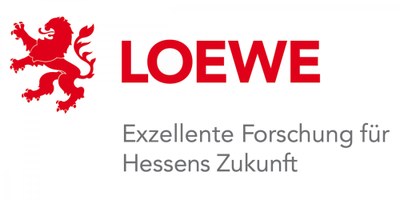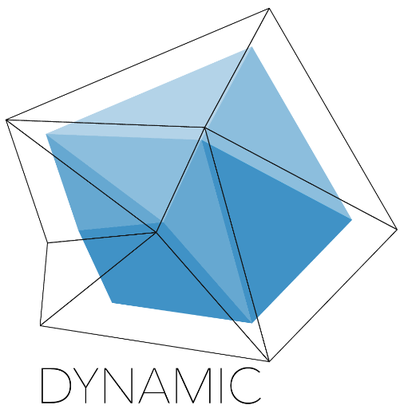DYNAMIC – Dynamic Network Approach of Mental Health in Children and Adolescents
In DYNAMIC, the DIPF examines dynamic relations between various determinants of mental health in children and adolescents over time. The aim is to identify risk constellations at an early stage in order to develop personalised, adaptive interventions.
In the LOEWE centre DYNAMIC, experts from psychology, psychiatry, statistics and machine learning are working together on the vision of better understanding mental illnesses. DYNAMIC pursues an innovative approach in which mental disorders are viewed as dynamic networks of psychopathological, psychological and biological processes. A dynamic network describes the interplay between psychological symptoms and their interactions with socio-emotional and psycho-physiological influences over time. The structure (strength and direction of the connections) can vary from individual to individual, and the connections within such a network can also change (strengthen or weaken) over time and in response to external influences (e.g. lifestyle, life circumstances or situational challenges).
A more comprehensive understanding of the development of these dynamic network structures will contribute to a better understanding of the foundations of mental health and the development of mental illness, the identification of risk states and the development of individualised approaches for prevention and therapy, and may enable a more targeted, personalised adaptation of therapies in the long term.At the DIPF, the focus is on the application of network-based approaches to improve mental health in children and adolescents. The longitudinal development of socio-emotional network dynamics in the context of transitions during childhood and adolescence is investigated. Transitions (such as school admission) constitute critical life events that can be accompanied by profound adaptations in the dynamic relationships between the various determinants of mental health and well-being. Longitudinal analyses of these relationships and the use of Ecological Momentary Assessments (i.e. repeated assessment of experience and behaviour or physiological parameters under everyday conditions) allow for the identification of protective and risk factors during the developmental process and for the recognition of divergent network configurations at early stages.
The knowledge gained can be used for the personalised planning of therapies. This includes a special focus on the development of interventions that are tailored to the individual needs of children and adolescents to provide them with targeted support to overcome challenges in their daily lives.
- Improve understanding of the complex interactions between multiple determinants of mental health
- Investigate the socio-emotional development of children and adolescents during critical transition phases by modeling dynamic networks of typical and divergent developmental patterns
- Identify risk factors and divergent network configurations to support the development of personalized therapeutic interventions
- Establish a multicenter database to share network data on children and adolescents

- Philipps University Marburg: Department of Psychology of the Philipps University Marburg, Clinical Child and Adolescent Psychology, Clinic for Child and Adolescent Psychiatry Marburg, Clinic for Psychiatry and Psychotherapy Marburg
- Justus Liebig University Giessen: Department of Psychology at Justus Liebig University Giessen, Behavioural Therapy Outpatient Clinic for Children and Adolescents Giessen, Clinic for Psychiatry and Psychotherapy Giessen
- Goethe University Frankfurt: Department of Psychology and Department of Computer Science and Mathematics at Goethe University Frankfurt, Clinic for Psychiatry and Psychotherapy Frankfurt, Clinic for Psychiatry, Psychosomatics and Psychotherapy of Childhood and Adolescence Frankfurt
- Technical University of Darmstadt: Department of Computer Science
- Ernst Strüngmann Institute for Neurosciences (ESI)
Status: Current projectAreas of focus Department: Education and Human Development Education Sectors: Extracurricular Learning, Primary and Secondary Education, Science Duration: 01/2024 – 12/2027Funding: External fundingContact: Dr. Lena Wieland, Academic Staff
